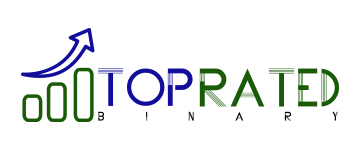Foreign exchange and commodity trading are becoming increasingly popular in India alongside the equity market. They share a number of similarities and differences, although commodity traders trade commodities under a variety of categories, including bullion, metals, energy, and agriculture. Meanwhile, it is possible to buy and sell currencies on the foreign exchange market.
How does the commodity market work?
There are several commodities traded in the commodities market, including Gold, silver, copper, lead, zinc, crude oil, natural gas, cotton, and sugar. Currently, there are more than 50 commodity markets around the world, and 100 commodities are traded.
This allows investors in the commodities market to diversify their portfolios.
The commodities market can be invested in by means of futures contracts (in other words, contracting to buy and sell commodities at a future date). A buyer enters into this contract by agreeing to purchase an item at a fixed price, and a seller agrees to supply it at a future date.
There are several commodities exchanges in India, including the Multi-Commodity Exchange of India Limited (MCX), National Multi-Commodity Exchange of India Limited (NCDEX), and Derivative Exchange of India Limited (NCDEX).
Benefits of trading commodities
- A portfolio can benefit significantly from diversifying with commodities.
- Investments in global markets expose investors to new opportunities.
- There is more trading time with commodities due to their longer market hours.
- The seasonality of most commodities is observable.
- Leverage may be a bit higher when trading commodities than in some securities.
- Investing in commodities can be an effective way to carry out trade.
How does the FOREX market work?
In its five-day week of operation, the foreign exchange market trades various currencies without any physical exchange. On the currency market, which is the largest financial market in the world, companies, banks, investment firms, hedge funds and forex brokers participate.
Exchange rates for currencies are affected by supply and demand, which is influenced by inflation, interest rates, political events, and economic strength.
Spot trading is the most popular option among forex investors because there is more choice between spot trading, forward trading and futures trading. Unlike futures markets, spot trading results in the immediate delivery of commodities.
Currency is exchanged at the prevailing rate in the spot forex market at the time the transaction takes place.
FOREX Trading benefits
- In case of a financial emergency, currency trading offers easy access to returns.
- Investing in currencies provides investors with exposure to global markets, just as they would with commodities.
- There are five days a week where the market is open all day, allowing for flexible trading hours.
- Currencies are more leveraged than commodities.
- You can diversify your portfolio by investing in currencies.
- Investing in Forex can be hedged to protect against political and event-related risk.
FOREX vs Commodity Trading
There are some similarities between trading on the forex and commodities markets, and there are some differences as well. Commodity and currency markets both have unique advantages.
You can speculate on short term movements of the markets by using currency futures on Forex, similar to commodity trading. A commodities market portfolio can be more diversified if you invest in alternative investments.
Commodities also make effective carry trades because they have predictable seasonal patterns. Transaction costs are lower, and they have lower transaction costs.
Another similarity between commodities and forex trading is that both allow you to benefit from arbitrage. It means that you can earn returns by taking advantage of the varying exchange rates of the same currency or commodity in different markets.
Regulated Forex vs commodities markets differ in terms of their sturdiness, but forex trading has more minor stipulations.
The other difference between Forex and commodities is the amount of leverage that can be used for a trade, with the currency market offering a significant amount of influence which is relatively easier to fulfil than commodity trading.
A forex market, on the other hand, is very liquid due to the security being exchanged in the currency itself. Investments in Forex can also be hedged in order to protect investors from financial risk.
Investor Choice Factors
A person’s choice between Forex and commodities is influenced by several factors. Here are a few:
Since commodities are a physical market, which can have tangible ramifications in everyday life, some traders may be drawn to commodities as an investment opportunity.
Foreign currency markets are not subject to as stringent regulations, which makes them easier to avoid. Comparatively, commodities markets are more tightly regulated.
On the other hand, currency trading can be straightforward in the forex market compared to commodities since they are traded on exchanges and have daily range limits. Once these limits are exceeded, you cannot place a trade. In things, it is much harder to exit your business after a quick loss.
Some currencies, including the Australian, Canadian and New Zealand dollars, are backed by various commodities, including Gold, crude oil, and milk, respectively. Investors may trade in them to some extent and benefit from both forex and commodities trading.

